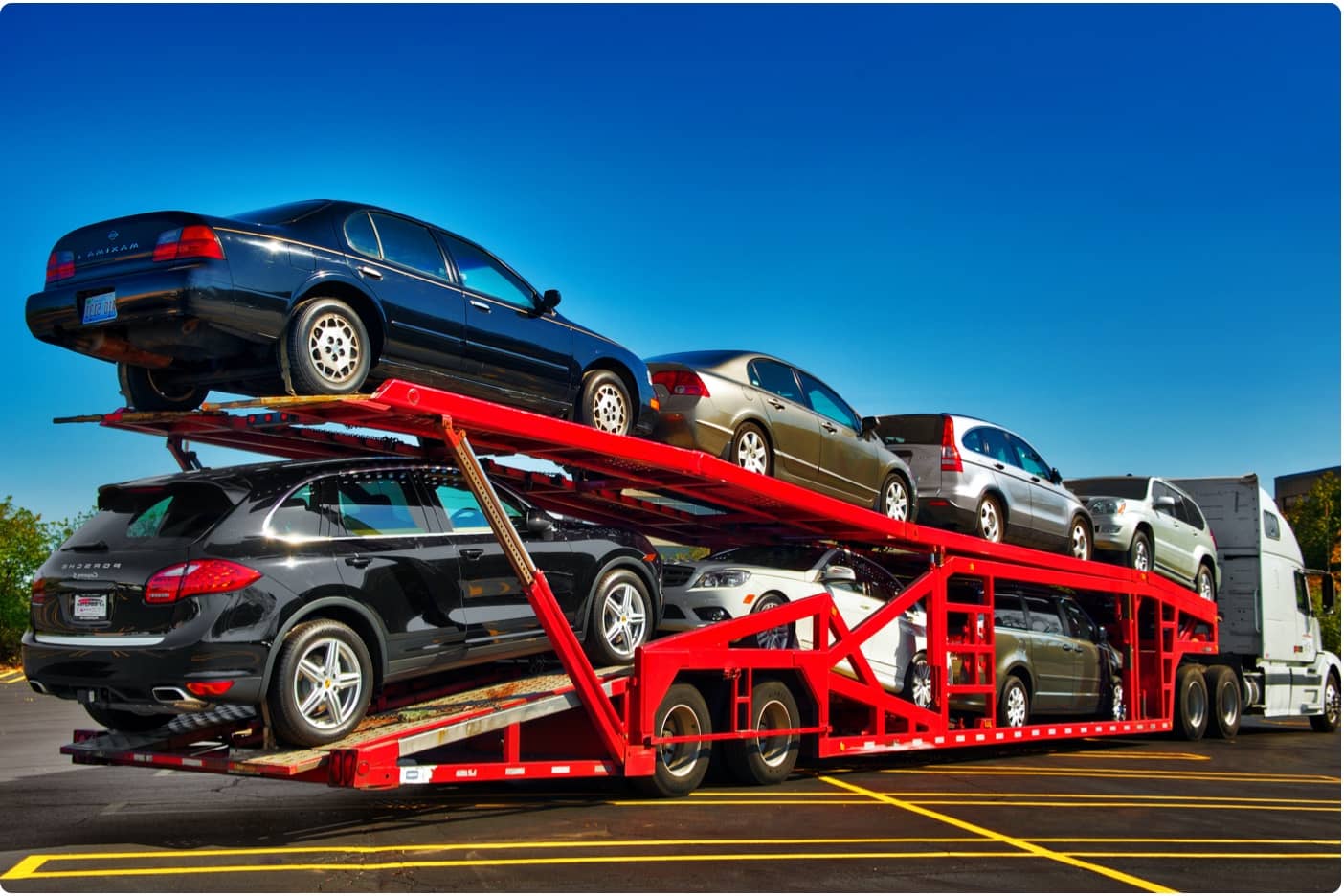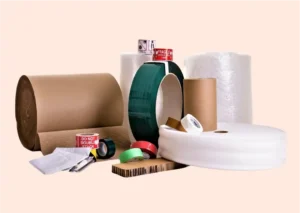Table of Contents

Article-at-a-Glance: Navigating Your Finances for a Smooth Move
-
Understand the major costs involved in relocation, including movers, rent, and utilities.
-
Discover hidden fees and unexpected expenses that can catch you off guard.
-
Learn how to compare DIY moving versus hiring professionals and the associated costs.
-
Grasp the importance of budgeting for the first month’s essentials in your new home.
-
Get tips on saving strategies to boost your relocation budget.
Discover Your Relocation Budget Blueprint
Moving to a new home can be an adventure, but without a solid financial plan, it could turn into a stressful experience. To make sure you’re ready for this big step, you need a relocation budget blueprint. This plan will be your financial roadmap, helping you navigate through the costs and ensuring you don’t get caught off guard by unexpected expenses. Let’s break it down together, step by step.
Essential Costs: Breaking Down the Non-Negotiables
First things first, let’s talk about the non-negotiables. These are the expenses that you can’t avoid when moving:
-
Moving Services: Whether you hire movers or rent a truck, there will be costs.
-
Deposits and First Payments: For your new home, you’ll need to cover the security deposit and first month’s rent or mortgage.
-
Utilities: Setting up electricity, water, and internet services often requires initial fees.
These are just the basics. Next, we’ll dive into the details of each, so you can budget like a pro.
Hidden Fees: Anticipating the Unexpected
Besides the obvious costs, there are always hidden fees lurking around the corner. These might include:
-
Application fees for your new rental
-
Equipment rental for moving bulky items
-
Last-minute supply runs for packing materials
By anticipating these sneaky costs, you can avoid the shock to your wallet. But how much should you set aside for these unexpected fees? A good rule of thumb is to add an extra 10-15% buffer to your total moving budget.

Pinpointing Your Moving Costs
Now, let’s pinpoint your moving costs. The amount you’ll need to save depends on several factors, including the distance of your move and how much stuff you have. A local move might only require a few hundred dollars, while a cross-country journey could run into the thousands.
DIY vs. Professional Movers: A Cost Comparison
Do you grab some friends and a pizza for a DIY move, or do you call in the professionals? Here’s a quick cost comparison:
DIY moving might seem cheaper at first glance, but don’t forget to factor in truck rental, fuel, and your time. Professional movers, on the other hand, can be more expensive upfront but save you time and hassle.
Consider both options carefully, and choose what’s best for your budget and peace of mind.
|
Aspect |
DIY Moving |
Professional Movers |
|---|---|---|
|
Cost |
Generally cheaper, but hidden expenses like fuel, potential damages, and stress-related costs |
Higher immediate outlay but offers convenience and peace of mind |
|
Services Provided |
Requires personal acquisition of resources like packing supplies and vehicle rental |
Includes packing, transporting, unloading items, eliminating physical demand and time investment |
|
Control |
Total control over the move, flexibility in timing and choice of moving supplies |
Less control but trained crew members handle items with care, reducing physical strain on individualS |
|
Effort |
Involves heavy lifting, meticulous planning, and potential risks like damage or injuries |
Saves time and effort, ensures trained crew members handle items with care, reduces physical strain on individuals |
|
Suitability |
Suitable for local moves with fewer belongings and when budget constraints are a concern |
Ideal for large, complex, long-distance moves where convenience and peace of mind are prioritized over cost savings |
Packing Supplies: Quantity and Quality Matter
It’s not just about boxes and tape; the quality of your packing supplies can protect your belongings during the move. You’ll need to budget for:
-
Sturdy boxes in various sizes
-
Bubble wrap and packing paper
-
Heavy-duty tape
Don’t skimp on these – the last thing you want is a box breaking open during the move! For more information on protecting your items, consider looking into custom crating services.
Personal Travel: Counting Miles and Costs
When it comes to personal travel, every mile can add up, especially if you’re moving out of state. To budget effectively, calculate the distance to your new home and consider:
-
Fuel costs, if you’re driving
-
Plane tickets, if you’re flying
-
Food and lodging, if the trip will span multiple days
And remember, the journey to your new home is just the start. Once you arrive, you’ll need to navigate your new surroundings, which brings us to our next point.

Vehicle Transport: To Ship or Not to Ship?
When planning a long-distance move, one of the decisions you’ll need to make is whether to ship your vehicle. This can be a complex decision with multiple factors to consider, such as cost, convenience, and the distance of your move. For more information on budgeting for a long-distance move, including vehicle transport, you might find this U-Pack article helpful.
If you’re moving a long distance and not driving your vehicle, you’ll need to decide whether to ship it. This can be a costly part of your moving budget, so get quotes from several auto transport companies. Consider factors like:
-
The distance of the move
-
The type of transport service (open vs. enclosed)
-
The value and condition of your vehicle
Shipping your car might be a significant expense, but for many, the convenience is worth the cost.
Day One Necessities: From Toiletries to Takeout
When planning your move, consider the essentials you’ll need for the first day in your new home. This includes items like toiletries, a change of clothes, and perhaps even arranging for takeout to make the first night less stressful. Having these items easily accessible can make the transition smoother and more comfortable.
When you first arrive, you’ll need a few essentials to get through the day. Budget for items like:
-
Toiletries
-
A change of clothes
-
Basic cleaning supplies
-
Takeout or groceries for your first meals
Having these items easily accessible will make your arrival less hectic and more comfortable.
New City Navigation: Transit Passes and Gas Tanks
Getting around in a new city can be a challenge. If you’re not shipping a vehicle, you might need to rely on public transportation. Budget for:
-
Transit passes
-
Ride-sharing services
-
Rental cars, if needed
And if you did bring your car, don’t forget to factor in initial fuel costs as you explore your new home.
Smart Savings Strategies for Pre-Move Prosperity
Building a strong financial foundation before your move is critical. Here are some smart savings strategies:
Cutting Costs: Creative Ways to Save on Daily Expenses
Examine your daily expenses and find ways to cut back. This could include:
-
Cooking at home instead of eating out
-
Cancelling unused subscriptions
-
Using public transportation rather than driving
These small changes can add up to significant savings over time, padding your moving budget.
Side Hustles: Supplementing Your Savings
If you’re looking to boost your savings, consider picking up a side hustle. This could be anything from freelance work to driving for a ride-share service. Extra income can help cover moving expenses and reduce financial stress.
Creating Your Moving Money Map
Now, let’s create your moving money map. This is your personalized budget that will guide you through the financial aspects of your move.
Calculating Costs: How to Use Moving Budget Calculators
Moving budget calculators can be a lifesaver. They help you estimate costs by considering factors like:
-
The size of your move
-
The distance you’re traveling
-
Additional services like packing and storage
Use these tools to get a clearer picture of your moving expenses and adjust your budget accordingly.
Making a Plan: Step-by-Step Budgeting for Your Move
Creating a step-by-step budget for your move involves:
-
Listing all potential expenses
-
Researching costs and getting quotes
-
Setting aside money for unexpected costs
By breaking down the process, you can ensure that you’re financially prepared for every aspect of your move.
Compounding Savings: The Benefit of Time
Understanding the power of compounding savings is crucial when planning a move. By starting to save early, you give your money more time to grow, which can significantly ease the financial stress of a relocation. For more detailed strategies on saving for a move, check out our budget moving guide which offers affordable mover hiring strategies and a savings tips checklist.
The sooner you start saving for your move, the better. Thanks to compounding interest, even small amounts saved early can grow over time. Open a high-yield savings account specifically for your moving fund to maximize your savings.
For example, if you save $100 a month for a year in an account with a 1% interest rate, you’ll have $1,205 by the end of the year—not just $1,200, thanks to interest earned. That extra bit can cover some unexpected moving costs.

Final Thoughts on Financial Empowerment Through Moving
Moving is more than just a physical transition; it’s a financial journey that requires careful planning and smart budgeting. By following the tips and strategies outlined in this guide, you’re setting yourself up for a successful and financially secure move. Remember, the key to a stress-free relocation is being prepared for both the expected and unexpected costs.
As you embark on this exciting new chapter, keep your financial goals in sight and take proactive steps to manage your money. With a solid plan in place, you can enjoy the adventure of moving without the worry of financial strain. Stay informed, stay organized, and most importantly, stay empowered to make the best financial decisions for your future.
And if you find yourself needing additional guidance or support, don’t hesitate to reach out. Our expert team is ready to help you navigate the complexities of relocation budget planning. Contact us today and take the first step towards financial clarity in your moving journey.
You’re Just a Move Away From Financial Clarity
Imagine the peace of mind that comes with knowing your finances are in order, even amidst the chaos of moving. By taking control of your moving budget, you’re not just planning a move; you’re investing in your financial well-being. So, take a deep breath, and let’s make this move the beginning of a financially empowered life.
Remember, a successful move is not measured by how quickly you unpack your boxes, but by how effectively you manage your resources. With the right plan, you’ll not only move your belongings; you’ll also move forward in your financial journey.
Frequently Asked Questions
Got questions? We’ve got answers! Here are some of the most common queries people have when it comes to relocation budget planning:
What is a reasonable amount to save for a local vs. out-of-state move?
For a local move, aim to save at least $1,000 to $2,000 to cover moving services, supplies, and initial living expenses. An out-of-state move can be more costly, so consider saving $4,000 to $7,000, depending on the distance and size of your household.
How can I budget for moving expenses if my income is unpredictable?
If your income fluctuates, start by saving a small, manageable amount regularly. Create a separate savings account specifically for moving expenses to keep track of your progress. Adjust your savings goal as your income allows, and always look for additional ways to cut back on non-essential expenses.
What are the most commonly overlooked costs in moving?
Many people forget to budget for unexpected moving expenses.
-
Temporary storage fees
-
Pet relocation costs
-
Vehicle registration and driver’s license updates in a new state
These can quickly add up, so make sure to include them in your moving budget.
Should I consider hiring a financial advisor for my relocation?
While not necessary for everyone, a financial advisor can provide valuable insight if you have a complex financial situation or if you’re moving a large household. They can help you optimize your budget and ensure you’re making the best financial decisions during your move.
How do I build an emergency fund in preparation for a move?
Start by setting a monthly savings goal and automate your contributions to an emergency fund. Cut back on non-essential spending and consider additional income sources. Even a modest emergency fund can provide a financial cushion for unexpected moving expenses or transitional costs.
Relocating doesn’t have to mean relinquishing control over your finances. With these tips and a bit of planning, you’ll find that a well-budgeted move is within your reach. So, go ahead and take that step towards your new home with confidence, knowing you’re financially prepared for whatever lies ahead.
If you’re ready to take the leap but still have questions or need personalized advice, our door is always open. Contact us and let’s ensure your move is as financially sound as it is exciting.



